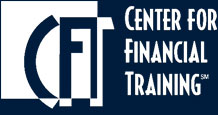Working in compliance is like navigating a minefield. At every turn there are opportunities to violate a law or regulation, or otherwise do something that your examiners won’t approve of. But when it comes to compliance, the best adage is often ‘learn from others’ mistakes.’ Most regulators’ enforcement actions are public information, and from those (as well as talking with other bankers) it becomes more obvious what the more common violations are. This webinar will take a comprehensive approach to identifying the most common violations out there over the years, covering deposits, operations, lending, privacy, BSA/AML, and others. What should we be looking for in our testing and compliance audit programs? How best can we avoid some of the more frequently-troubling and difficult areas of compliance? Attend this two-hour program and come away with a healthy list of issues to look for an avoid (before your auditors and examiners do!)
Covered Topics
- Failing to aggregate multiple transactions for CTR reporting
- Failure to provide proper and timely notice when placing holds on deposits
- Not following the timing requirements when resolving debit card disputes
- Miscalculating the tolerance amounts in TRID loans
- Filling out adverse action notices incorrectly (plus not knowing when to provide them)
- Missing HMDA-reportable loans and lines of credit
- Misidentifying loan purpose on TRID disclosures and HMDA reporting
- Not providing 1099-INTs when you should
- Miscalculating minimum flood insurance amounts
- Allowing insiders to borrower too much from your bank under Reg. O
- Not retaining proper documentation when filing SARs (or not filing them)
- And many, many more! We’ll discuss literally dozens of issues like this on many topics.
Who Should Attend?
Anyone involved with finding, preventing, and remediating compliance violations will benefit from this program, including compliance professionals, auditors, QA and QC personnel, attorneys, management, and first-line compliance personnel, among others.
Continuing Education (CE) Credits
This webinar is recommended for 2.5 CE Credit Hours. Each attendee will receive a Certificate of Attendance for self-reporting of CE Credits.
